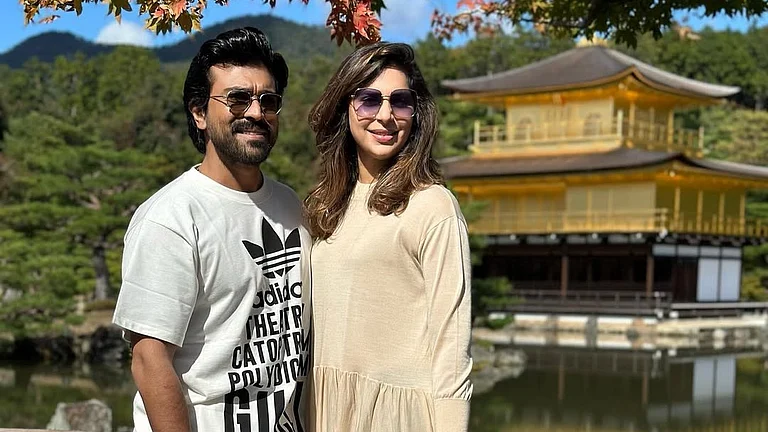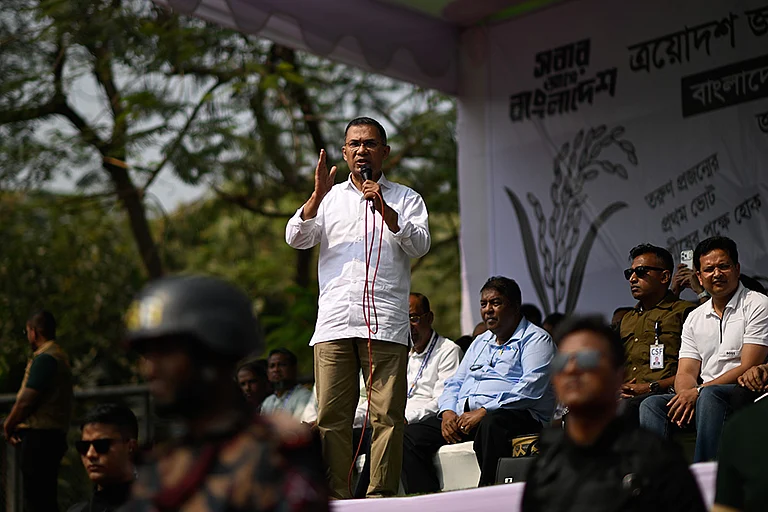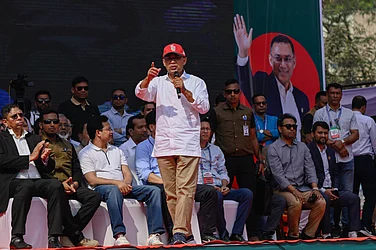A mother of two, 28-year-old Chinmayee Panda lost her husband, the family’s sole breadwinner, in August 2020. “He had cough and fever,” she says. Living in the Koilipangi village of Dhenkanal district in Odisha, Chinmayee struggled to make ends meet after his death. The situation at home also came in the way of her daughters’ education and well-being. One was nine and the other, just three.
Chinmayee now gets widow pension and 10 kilograms of rice every month for her family. Her children are also registered under the state government’s Ashirbad Scheme and are receiving Rs 1,500 per month. “I am grateful to the district administration for providing me widow pension and ration card, and to District Child Protection Unit for their support to my children under Ashirbad Scheme. This enabled them to continue their education,” says Chinmayee. But is this all that you need to survive in such difficult times?
34-year-old Priyanka Saxena, now based out Noida lost her husband to Covid-19 as well. Though she is an engineer with an MBA degree, she had taken a long break in her career and feels getting a job will not be easy for her. Narrating her story as to how she lost her husband, Saxena states, “We came to India in February 2021 because my father-in-law was unwell. In April we were supposed to come back to Qatar, but in April first week, my husband tested Covid-positive. He was admitted to the hospital on 14th April. The rest of us also tested positive. On the 21st of April, we got a call from the hospital about his death. We had been in touch with him through video calls during his hospital stay, and the sudden news of his demise was very difficult for all our family members to believe. I am still on the lookout for a job that will help me to balance both my professional and personal life because I have two kids. My elder daughter’s birthday was just after a week my husband passed away and we had planned for a big birthday party. But I guess life had some other plans for us.”
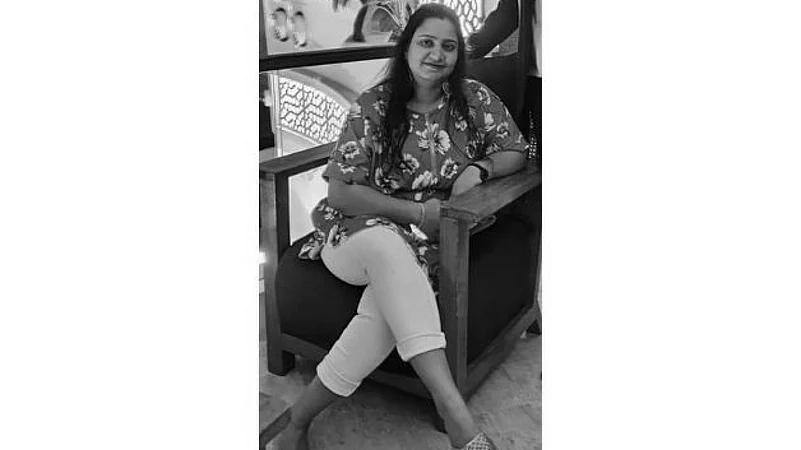
According to a 2015 survey by ratings agency Standard and Poor's (S&P), 35 per cent of men across the globe are financially literate compared to 30 per cent of women, BBC reported. But in India, financial literacy is lower and the gender gap is wider, with 27 per cent of men financially literate compared to just 20 per cent of women.
The IC3 Institute, a U.S. non-profit organisation, is helping Indian women who have lost their breadwinners to Covid-19 by empowering them with training and employment opportunities. These women will be trained as career counsellors and connected with full-time employment opportunities within IC3's global network of high schools.
Ganesh Kohli, founder of the IC3 Movement says, “The Covid-19 surge in India has brought many challenges, one of which is the loss of the sole breadwinners in many families, pushing them to the brink of poverty. While there has been a lot of international and domestic support for immediate relief measures, as the pandemic wears on, these families need sustenance support beyond having their immediate relief needs met. Our hope is that providing sustainable livelihood opportunities to the affected families will help them overcome the many challenges of the post-pandemic world.”
Through this initiative, IC3 is providing Covid widows financial aid and welfare, training and education to become career counsellors, upskilling to prepare them to join the modern workforce and socio-emotional counselling and life skills training and will be linked to schools in their region to ensure sustainable employment opportunities.
Saxena says, “IC3 came like a ray of hope to me. It is because of them I was able to come out of my grief to regain my confidence. Now I have to start my life from the scratch. When I lost my husband, I was totally confused and didn’t know what to do. My husband had given us a very comfortable life. He was an engineer. But now things have completely changed. We were settled in Qatar for the last seven years. I am now supporting my kids with whatever my husband has saved.”
In the course of IC3's training, all the women will be provided with financial aid, laptops and mobile phones. The training will be provided in a blended learning format, with a mixture of online and in-person learning. The cost of their travel, accommodation and food for the week of in-person training will be covered by the IC3 Institute. Kohli adds, “As the training proceeds, we will connect them to schools in their region to ensure sustainable employment opportunities.”
Vinti Sharma, mother of three kids who lost her husband to Coronavirus last year says, “I had my third baby in March 2021. My husband and mother-in-law had fever one night. We did self-medication because with a new baby at home, we were scared of visiting the doctor. On the 21st of March, my husband had severe difficulty in breathing. But seeing his condition, I felt there was no other option, but to take him to the doctor. I had to call the ambulance and the moment the ambulance arrived, my husband had already expired.”
Sharma’s financial condition is not great. Though her husband was running a construction business, it was running at a loss since the lockdown started in 2020. “My husband’s business was already running at a loss and his sudden death completely shattered me. I have done a B.Ed course but since my kids are very young, I was unable to start working a job. The day my husband died all of us tested positive for Covid. So, I couldn’t do his funeral ceremony. That was a terrible time in my life. I am still on the lookout for a job.”
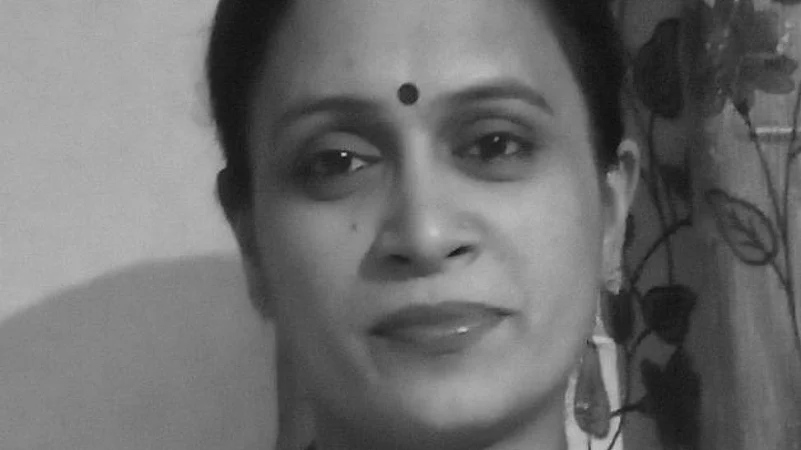
Working on the ground in several districts of the country, Action Aid Association, another organisation helping Covid widows, has been focusing on the medical, livelihood and education-related needs of those affected by the pandemic. The organisation has been making efforts for the rehabilitation of families left behind due to the death of income providers. Given a large number of unrecorded deaths and the inability of families to prove death from Covid-19, the numbers of Covid widows are likely to be higher than just those reported, creating added vulnerabilities for them.
Sandeep Chachra, Executive Director of ActionAid Association says, “Covid widows are often being left out of rehabilitative efforts and announced entitlements on account of lack of information, awareness or inability to do the required paperwork. After the second wave, for instance, in Navsari, Gujarat, ActionAid conducted a survey aimed towards identifying the women widowed during the pandemic; they are now initiating a targeted plan for their welfare.”
Single women have, in general, been at the centre of ActionAid Association’s wide-ranging work, including relief efforts during the pandemic. In several states, during relief distribution (rations and hygiene kits); medical support and psycho-social counselling; and livelihood interventions, ActionAid has prioritised such women, numbering into thousands.
Living with her mother and elder sister in Dhoba Sahi in Nayagarh district, Odisha, Papali Barik, 15, lost her father to Covid. The family, as it grieved, also had to now struggle to run the house. Papali learnt about Odisha Government’s Ashirbad Scheme – educational support for children who lost their parent(s) – during an adolescent engagement programme and with the help of the District Child Protection Unit of Nayagarh and ActionAid Association, was registered under this scheme. The District Coordinators of ActionAid provided technical support to DCPU in terms of implementation of programmes – supporting data collection from the field, awareness-building, developing application formats and guidelines for verification and ratification, and coordinating the process of children being produced before the Child Welfare Committee.
Papali now gets Rs.1,500 per month and is continuing her higher education from a government college. Her mother, Anjali receives widow pension and monthly rice quota under PDS. She was also supported to apply for death assistance of Rs.50,000. The effort of linking Anjali with skill-training to help build her livelihood is now on.
Overcoming grief
Losing a spouse is one of the most traumatic experiences in an individual's life. And to be a woman who has lost her husband, especially during Covid times has been even more daunting owing to the social and physical distancing guidelines. Many women have felt that they have had no closure as they have not been able to see or visit their husbands towards the end in hospitals or be able to carry out a dignified funeral with loved ones or family.
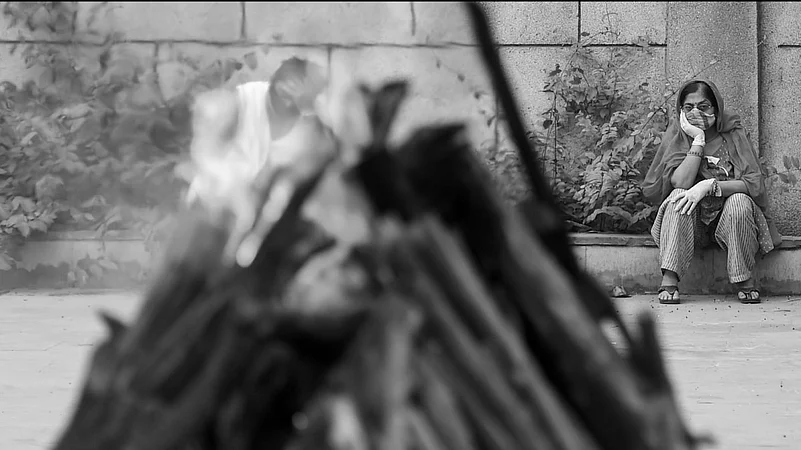
Marker explains that sometimes women find that grief counselling makes it easier to work through the sorrow. Regular talk therapy and counselling sessions with a grief counsellor, psychologist or therapist can help women learn to accept the loss and, in time, start a new life. There are also support groups where grieving women can share and help each other with suggestions or thoughts to manage their emotions and feelings. He advises, “Looking after one’s self is of primal importance. Women are asked to direct their thoughts and energies towards their families and children. Resting with good sleep, eating well, exercising and keeping oneself mentally and constructively occupied is very important. Accepting family or loved one’s company, companionship or help is also healthy.”
For those with children, remember that they are grieving, too. Open and honest communication where bereavement is normalised is important. It’s okay to break down, be vulnerable or cry in front of your children or loved ones. Marker adds, “Mourning takes time and is a very individualistic journey. Sometimes medication may also help to alleviate the anxiety, negative thoughts, low moods and disturbed sleep.”








